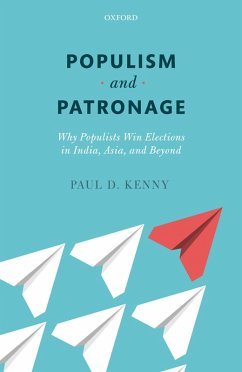Populist rule is bad for democracy, yet in country after country, populists are being voted into office. Populism and Patronage shows that the populists such as Indira Gandhi and Narendra Modi win elections when the institutionalized ties between non-populist parties and voters decay. Yet, the explanations for this decay differ across different types of party system. Populism and Patronage focuses on the particular vulnerability of patronage-based party systems to populism. Patronage-based systems are ones in which parties depend on the distribution of patronage through a network of brokers to mobilize voters. Drawing on principal agent theory and social network theory, this book argues that an increase in broker autonomy weakens the ties between patronage parties and voters, making latter available for direct mobilization by populists. Decentralization is thus a major factor behind populist success in patronage democracies. The volume argues that populists exploit the breakdown in national patronage networks by connecting directly with the people through the media and mass rallies, avoiding or minimizing the use of deeply-institutionalized party structures.This book not only reinterprets the recurrent appeal of populism in India, but also offers a more general theory of populist electoral support that is tested using qualitative and quantitative data on cases from across Asia and around the world, including Indonesia, Japan, Venezuela, and Peru.
Dieser Download kann aus rechtlichen Gründen nur mit Rechnungsadresse in A, B, BG, CY, CZ, D, DK, EW, E, FIN, F, GR, HR, H, IRL, I, LT, L, LR, M, NL, PL, P, R, S, SLO, SK ausgeliefert werden.









